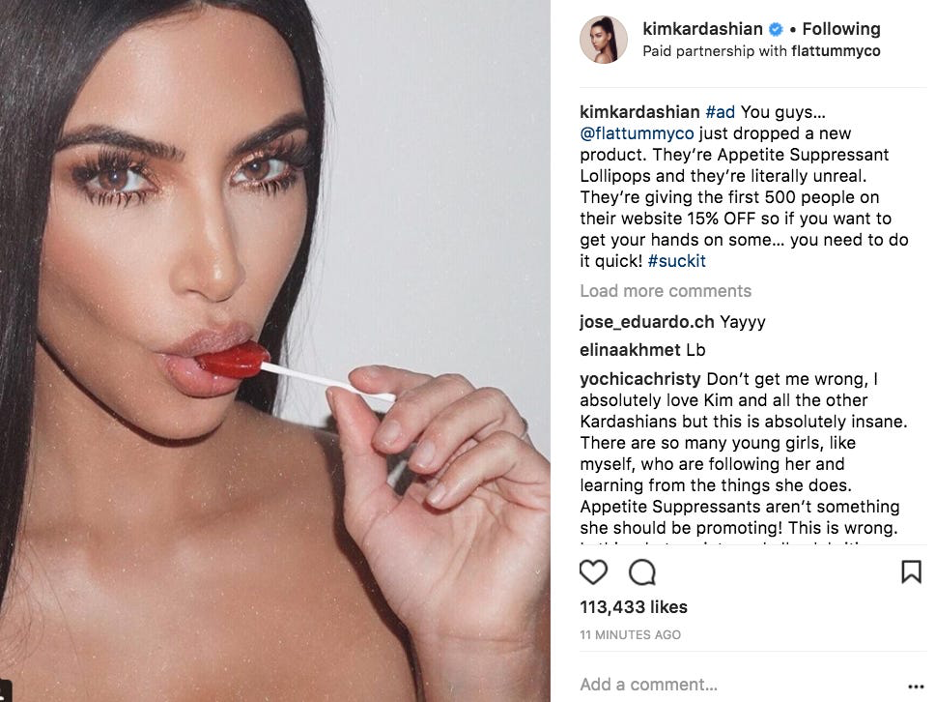Case Study: Flat Tummy (continued)
To demonstrate how an influencer can utilize the TARES test we will examine a controversial Instagram post made by Kim Kardashian West. In May of 2018, Kardashian West posted an ad for a hunger suppressant lollipop from the company Flat Tummy.

In this post, Kardashian West did include #ad. Although she was not criticized for product promotion, controversy arose over the product she endorsed. Backlash stemmed from followers accusing Kardashian West of perpetuating unhealthy dieting habits. Fellow influencer/actress Jameela Jamil responded to the post referring to Kardashian West as a “terrible and toxic influence on young girls” (Mahdawi, 2018). Kardashian West deleted the post.
This example showcases how FTC disclosure regulations are not enough to conclude whether an ad is ethical or not. It further illustrates how acting unethically can harm an influencer’s public image. To better understand the functionality of the TARES test we will walk through the process by considering the above ad. As with all ethical dilemmas, your reasoning may differ from others.
The advertisement is not truthful in its claim to provide users with a flatter tummy. A Harvard medical school professor told the Guardian that “dietary supplements sold for detox or weight loss are snake oil, plain and simple” (Wong, 2018).
Next Page: Case Study (continued): Authenticity